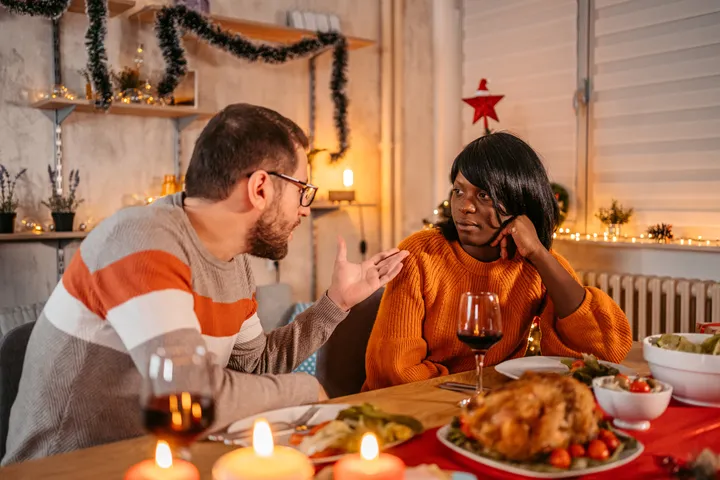3. Say “yes” only to the events you truly want to attend.
“If we recognize that we tend to overfill our schedule with holiday parties (usually out of the desire to please others), and then feel emotionally exhausted, then maybe the thing we are needing is self-preservation,” said Kaitlin Soule, a licensed marriage and family therapist and author of “A Little Less of a Hot Mess.”
“This might look like committing to saying ‘yes’ to just your top two or three holiday-related events and building in more time to cozy up at home with a good book or a loved one,” she added.
4. Establish your COVID requirements ahead of time.
Anisha Patel-Dunn , a practicing psychiatrist and chief medical officer of LifeStance Health, suggested also setting COVID-19 boundaries, especially with people who are unvaccinated.
If you don’t want to expand your circle this year, try saying something like “to keep everyone as safe and healthy as possible this season, I’m comfortable hosting our immediate family at home, and will plan to celebrate with friends and neighbors that we typically see this time of the year in different ways.”
Try to keep the discussion focused on you and your concerns, Patel-Dunn said. For example, you could say, “I would feel uncomfortable hosting you and putting you at risk knowing that you’re unvaccinated,” or “out of respect for everyone attending this year, here are the guidelines ― let me know if you need me to send a list of places to get PCR tested.”
5. Set a budget for gifts that won’t cause you anxiety.
“It is common for people to feel particularly stressed about monetary issues around the holiday time,” Hoffman said.
She suggests communicating ahead of time in whatever way feels right for you. “That might look like texting your friends that you would prefer to set a $20 cap for the gift exchange or simply opting out of that part of the party this year,” Hoffman explained.




